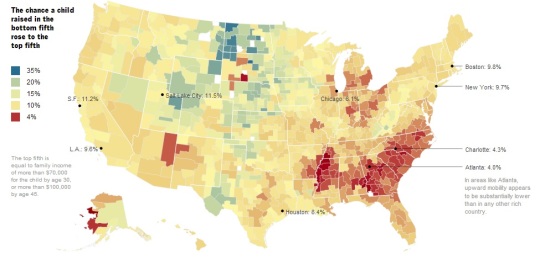Archive for the ‘Energy’ Category
July 17, 2014

Fuel efficiency in American automobiles has been rapidly increasing since 2007, when the US passed a law requiring a MPG of 35 by 2020. It had previously spiked in the 1970’s from similar legislation, but stagnated for decades before the recent run-up.
–from Citylab.com
Tags:cars, fuel efficiency, gas, vehicles
Posted in Energy | Leave a Comment »
March 3, 2014


Since the US developed and deployed shale petroleum extraction techniques in 2009, America has become the world’s largest petroleum producer. The US has surpassed Saudia Arabia as well as a combined Europe, South America, and Central America.
–from AEIdeas
Tags:America, energy prices, natural gas, petroleum, shale, US
Posted in Energy, Gas | Leave a Comment »
January 23, 2014

A combination of calming political situations in numerous oil producing countries combined with enormous gains in US oil production will likely result in deflation for all of the Western world. Inflation rates in the US and parts of Europe are already near or below 1% and there is little indication the trend will reverse, especially if oil prices slide substantially. The US is expected to equal or surpass Saudia Arabia’s oil production level by 2016.
–from The UK Telegraph
Tags:deflation, oil
Posted in Economy, Energy | Leave a Comment »
December 17, 2013

From a new report from the parliament of New Zealand: “The world’s oil production capacity may not be sufficient to match growing demand in coming years. The potential for short-falls arises from geological, infrastructure, and political/economic constraints limiting the ability of world oil production capacity to grow while demand continues to rise. If oil supply cannot meet demand a price spike may be triggered, with major detrimental effects on economies, especially those heavily dependent on oil imports…”
—from The New Zealand Parliament
Tags:economic downtown, energy market, energy prices, oil, oil production
Posted in Energy, Gas | Leave a Comment »
October 29, 2013

Using driverless cars on a massive scale would result in 4.2 million fewer car crashes a year, after they reach a 90% penetration rate. Although this is well into the future, the benefits of computer-driven systems is clear. Click through to see the assumptions underlying this data.
–from The Atlantic Cities
Tags:car safety, driverless cars, safety
Posted in Energy, Gas | Leave a Comment »
October 9, 2013

By the end of 2013 the US will be the world’s largest producer of oil and natural gas. This is largely due to the technological increases allowing access to previously un-reachable deposits in North Dakota, the Marcellus Shale Formation, and numerous other places.
–from Marketwatch.com
Tags:energy, oil, production
Posted in Energy, Gas | Leave a Comment »
August 14, 2013

Solar power is a focus of US military research and numerous market expansions and the technology is rapidly advancing. From the article: “We believe the solar sector is at an inflection point,” says Vishal Shah from Deutsche Bank. “It has passed the tipping point for grid parity in 10 major markets worldwide.”
–from The Telegraph (UK)
Tags:electricity, power, solar power
Posted in Energy | Leave a Comment »
July 22, 2013

This fascinating map shows the likelihood that a child from the bottom fifth of income will rise to the top fifth. In much of the Southeastern US, the likelihood is significantly lower than most of the country. Most notable, however, is North Dakota, which thanks to its persistently low unemployment rate, growing energy sector, and strong social policies provides essentially a one in three chance of moving to the top.
–from The New York Times
Tags:Inequality, North Dakota
Posted in Energy, Inequality, Maps | Leave a Comment »









